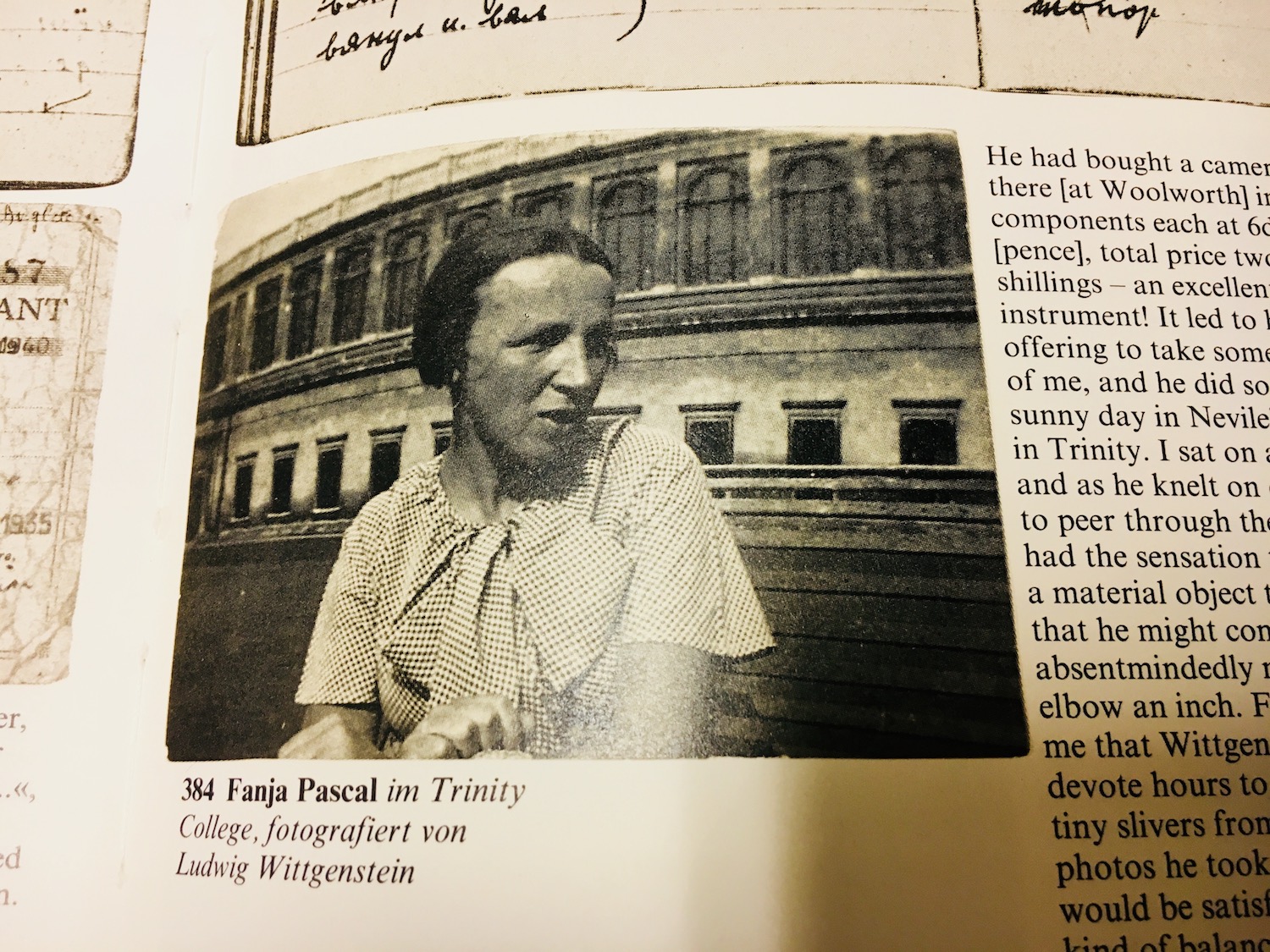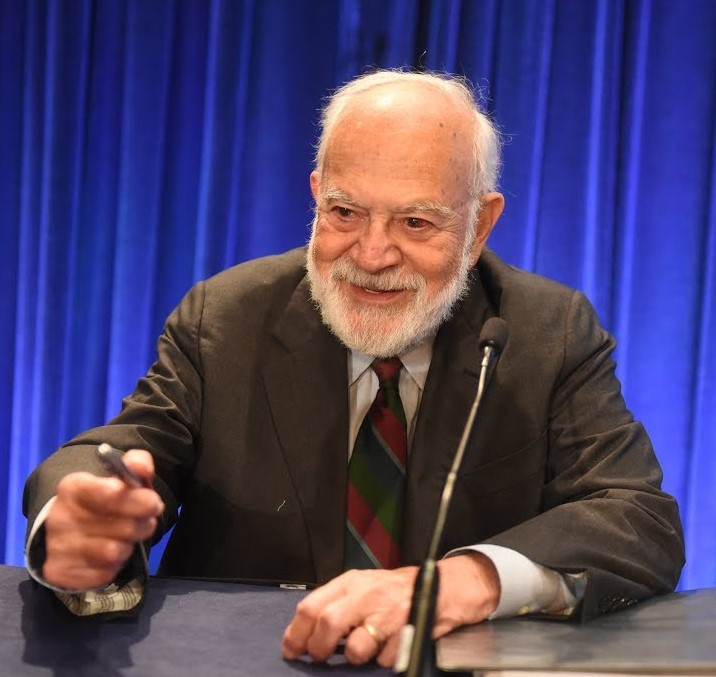On thought
that is
transmissioned by language

言語について考える
On thought
that is
transmissioned by language

生徒たちが先生に「わかりません」と主張する時におめでたいことに先生はそれを〈でも知りたいです〉と受け取りドヤ顏で講釈を引き続き垂れるが多くの生徒は〈その答えは我々にとって無意味だ〉と解している場合がある. -—— 教室の中のウィトゲンシュタイン
|
以下の文章は、入院しているファニア・パスカルを訪問したルードヴィッヒ・ウィトゲンシュタインとのやりとりを、後になりパ スカルが回想したも のである。 「扁桃腺を摘出して、きわめて惨めな気分でイブリン療養所に入院し ておりました。ウィトゲンシュタインが訪ねて参りましたので、わたしはこうう めきました。『まるで車にひかれた犬みたいな気分だわ』。するとかれは露骨にいやな顔をしました。『きみは車にひかれた犬の気分なんか知らないだろ う』。」(フランクファート=山形訳 2006:21より引用). I had my tonsils out and was in the Evelyn Nursing Home feeling sorry for myself. Wittgenstein called. I croaked: "I feel just like a dog that has been run over." He was disgusted: "You don’t know what a dog that has been run over feels like." (Fania Pascal 1981:42)
[問題]
2.ウィトゲンシュタインによる、この経験的には限りなく正しい推論に基づくものであるが、入院している友人には完全 に思いやりに欠 けるこの発言の真意はなんだろうか? 3.歴史的事実としてこの2人の会話を私たちが受け止めるとするならば、私たちはこの2人の会話からどのような教訓 (=後の我々の生 活に何か役立つこと)を引き出すことができるのか? |
今日は、言語を媒介にしたコ ミュニケーションの臨界点について考える。
霊能力者の主張を除けば、同一言語の話者 間におけるコミュニケーションの失敗(=障害)には次のようなものが考えられる。
1.言葉のシンボル機能の取り違え(例: 妻を帽子と取り違える)
2.統語機能の障害(例:電報文のように 助詞がなく単語が羅列されており語順も非正統的である)
この言語的コミュニケーションの障害のう ち、1.は、音はきちんと聞き取れ、かつ文法的には間違っていないのに、相手のメッセージを再構成する と何かおかしい。こういうメッセージは文法上は間違っていないため、発信者のプライドに対して配慮するということにより意味の修復を怠ってしまうことが多 い。受信者がそれに対して適切な修復措置を怠り、自らの恣意的な解釈をもって発信者にメッセージを投げ返すことで、コミュニケーションが破局的になる(= 意味がまったく通らない)ことがあることを我々はしばしば経験する。同音異義語では、この種のエラーがしばしば起こりやすい。
2.のケースに受信者が直面すると、受信 者は逆に適切な修復措置を試みやすい。相手が母語話者でない時、子供の時、偏見にもとづき知的障害や認 知症であると相手を勘ぐってしまう場合であるが、自分がもつ統語規則に対して自己中心的になり、そのことが相手のエラーを確認しようとすることに積極的 (プラス)に働くからである。相手のプライドよりもコミュニケーションの有用性が優先されるからである(もちろん相手に対して見下すという道徳観——“馬 鹿な奴は馬鹿にされて当然“——は背景に隠されてしまう)。
* * *
【上の黄色の囲みの再掲です】以下の文章 は、入院しているファニア・パスカルを訪問したルードヴィッヒ・ウィトゲンシュタインとのやりとりを、 後になりパスカルが回想したも のである。
「扁桃腺を摘出して、きわめて惨めな気分 でイブリン療養所に入院しておりました。ウィトゲンシュタインが訪ねて参りましたので、わたしはこうう めきました。『まるで車にひかれた犬みたいな気分だわ』。するとかれは露骨にいやな顔をしました。『きみは車にひかれた犬の気分なんか知らないだろ う』。」(フランクファート=山形訳 2006:21より引用).
I had my tonsils
out and was in the Evelyn Nursing Home feeling
sorry for myself. Wittgenstein called. I croaked: "I feel just like a
dog that has been run over." He was disgusted: "You don’t know what a
dog that has been run over feels like." (Fania Pascal 1981:42)
[問題]
[メモ]

ファニア・パスカルさん(Fania
Pascal)
・文献
+++++++++++++++++++++++++++++++++++++++
[グループワークと受講者からのフィード バック]2009年度の授業
発表:言語がわかるということ
【外国語学部生のレポーターのチーム】
・犬のみじめさのイメージ、同情の喚起、共感の能力
・ウィトゲンシュタインの発言の真意:ことばを素直にとらえる感覚、情報が限られているなかで、パスカルが犬好きだったとか、過去に不幸な 経験があれば、彼女にトラウマがあったと言えるのでは。
・どの理解に対して素直かが、彼と彼女の間で異なる?
・返事には2パターンある:同情する、と、わからないと主張する。どっちをだすかが問題。
【ヤマモト君と愉快な仲間たち】
・ウィトゲンシュタインについて:解釈が2つにわかる。
・パスカルは同情を求めた。それに対して彼は気遣う言葉をいうべきだったという解釈がまずなりたつ。
・空気の読めない人→教訓は、相手の状況や立場を理解すべき(普通の解釈)
・普通でない解釈:パスカルはウィトゲンシュタインに惚れている?パスカルの発言の真意は(明日も来てね!)か?
・ウィトゲンシュタインの立場から考えると、やっぱり、みじめ、きつい以上の理解を引き出すことができない。
・パスカルの言葉の限界について、彼は正しく指摘した。
・入院先にくるような彼についてのパスカルはよく知っているはず。予測可能。したがってこの会話は仲間内言語である。そこから推論できるの は、2人はデキていた???
・池田の設問はミスリードを生み出す罠?ではないか。
・教訓なし。let it be!
【サイエンス組】
・犬はみじめ→同情を引く?
・看護師経験者より扁桃腺を摘出した患者の経験をもとに、この会話を検証。うめくような経験への理解
・犬の苦しみを思い出して、感情をかきたてられた。
・哲学者どうしのプライドの対立
・コミュニケーションの前提:2人の信頼関係や哲学者であることを考慮すれば、なんでこんな会話なのかということも理解できるのでは?
【おとこしかいない?チーム】
・犬が死んでいる=救いようのない状況
・ウィトゲンシュタインの真意は、彼が犬好きでは?_比喩表現の指示対象(=犬)への同情。そんなに愚痴愚痴いうなよ、という感覚。
・比喩に対して揚げ足をとるのも大人げない→比喩の解釈をすすめることで、コミュニケーションを改善するという処方を引き出せる。
・会話データが少ない。さらなる情報が欲しい。
On Bullshit is a
2005 book (originally a 1986 essay) by American philosopher Harry G.
Frankfurt which presents a theory of bullshit that defines the concept
and analyzes the applications of bullshit in the context of
communication. Frankfurt determines that bullshit is speech intended to
persuade without regard for truth. The liar cares about the truth and
attempts to hide it; the bullshitter doesn't care whether what they say
is true or false.[1] Frankfurt's philosophical analysis of bullshit has
been analyzed, criticized and adopted by academics since its
publication.[2] Harry G. Frankfurt History Frankfurt originally published the essay "On Bullshit" in the Raritan Quarterly Review journal in 1986. Nineteen years later, the essay was published as the book On Bullshit (2005), which proved popular among lay readers; the book appeared for 27 weeks on The New York Times Best Seller list[3] and was discussed on the television show The Daily Show With Jon Stewart,[4][5] as well as in an interview with a representative of the publisher, Princeton University Press.[6][7] On Bullshit served as the basis for Frankfurt's follow-up book On Truth (2006). |
On
Bullshit(デタラメについて)は、アメリカの哲学者ハリー・G・フランクファートによる2005年の著書(元々は1986年の論文)で、デタラメ
の概念を定義し、コミュニケーションの文脈におけるデタラメの適用を分析するデタラメ理論を提示している。フランクファートは、デタラメとは真実を無視し
て説得しようとする発言であると定義している。嘘つきは真実を気にかけ、それを隠そうとするが、大ぼら吹きは自分が言うことが真実であろうと嘘であろうと
気にしない[1]。フランクファートによる大ぼら吹きの哲学的分析は、出版以来、学者によって分析、批判、採用されてきた[2]。 ハリー・G・フランクファート 歴史 フランクファートは、1986年に『Raritan Quarterly Review』誌に「On Bullshit」というエッセイを最初に発表した。19年後、このエッセイは『On Bullshit』(2005年)として出版され、一般読者にも人気を博した。同書は『ニューヨーク・タイムズ』紙のベストセラーリストに27週間ランク インし[3]、テレビ番組『ザ・デイリー・ショー・ウィズ・ジョン・スチュワート』[4][5]や、出版社プリンストン大学出版局の代表とのインタビュー [6][7]でも取り上げられた。デイリー・ショー・ウィズ・ジョン・スチュワート』[4][5]で取り上げられ、またプリンストン大学出版局の代表との インタビューでも話題となった[6][7]。『On Bullshit』はフランクフルトの続編『On Truth』(2006年)のベースとなった。 |
| Summary Frankfurt was a professional philosopher, trained in analytical philosophy. When asked why he decided to focus on bullshit, he explained: Respect for the truth and a concern for the truth are among the foundations for civilization. I was for a long time disturbed by the lack of respect for the truth that I observed... bullshit is one of the deformities of these values.[8] His book On Bullshit addresses his concern and makes a distinction between "bullshitters" and liars. He concludes that bullshitters are more insidious: they are more of a threat against the truth than are liars.[8] Humbug and bullshit Frankfurt begins his work on bullshit by presenting an explanation and examination of Max Black's concept of humbug.[9] Black's essay on humbug and Frankfurt's book on bullshit are similar. Both focus on understanding, defining and explaining their respective concepts and using examples. Frankfurt focuses on humbug, as he believes that it is similar to bullshit but is the more respectful term.[10] Frankfurt uses Black's work on humbug to break down the description of humbug into defining factors: "deceptive misrepresentation",[11] "short of lying”[12] "misrepresentation... of somebody's own thoughts, feelings, or attitudes",[13] and "especially by pretentious word or deed".[14] Frankfurt's analysis enables him to distinguish between humbug and lying. The main distinction is the intent that motivates them. The intent behind humbug is misrepresentation, whereas the intent behind lying is more extreme, intending to cover the truth. To Frankfurt, people tend to bullshit due to another motive that could hide something.[15] The comparison of humbug to lying acts as an initial introduction to bullshit. Humbug is closely related to bullshit, but Frankfurt believes that it is inadequate to explain bullshit and its characteristics.[16] Lying and bullshit Frankfurt's book focuses heavily on defining and discussing the difference between lying and bullshit. The main difference between the two is intent and deception. Both people who are lying and people who are telling the truth are focused on the truth. The liar wants to steer people away from discovering the truth, and the person telling the truth wants to present the truth. The bullshitter differs from both liars and people presenting the truth with their disregard of the truth. Frankfurt explains how bullshitters or people who are bullshitting are distinct, as they are not focused on the truth. A person who communicates bullshit is not interested in whether what they say is true or false, only in its suitability for their purpose.[17] In his book,[16] Frankfurt defines "shit", "bull session" and "bull". This is done in a lexicographical manner which breaks down the word bullshit and examines each component. The components of the word bullshit highlights the corresponding terms that encompass the overall meaning of the word bullshit: useless, insignificance and nonsense.[16] Next, Frankfurt focuses on the complete word and its implications and acceptance. He presents an example of advice provided to a child from his father which encourages choosing bullshit over lying when possible.[18] Frankfurt gives two reasons for the different levels of consequences between bullshit and lying. First, the liar is viewed as being purposefully deceitful or harmful because of the accompanying intent behind the act. Second, the person who bullshits lacks the kind of intention characteristic of the liar. Producing bullshit requires no knowledge of the truth. The liar is intentionally avoiding the truth, and the bullshitter may potentially be telling the truth or providing elements of the truth without the intention of doing so.[19] Frankfurt believes that bullshitters and the growing acceptance of bullshit are more harmful to society than liars and lying. This is because liars actively consider the truth when they conceal it, whereas bullshitters completely disregard the truth. "Bullshit is a greater enemy of the truth than lies are."[1] Frankfurt believes that while bullshit may be tolerated more, it is much more harmful. Rise of bullshit Frankfurt concludes his book by discussing the rise of bullshit.[16] He does not argue that there is more bullshit in society now[when?] than there was in the past. He explains that all forms of communications have increased, leading to more bullshit being seen, read and heard. He states that the social expectation for individuals to have and express their opinions on all matters requires more bullshit.[20] Despite a lack of knowledge on a subject matter, for example, politics, religion or art, there is an expectation to participate in the conversation and provide an opinion. This opinion is likely to be bullshit at times, as it is not based on fact and research. The opinion is motivated by a disregard of the truth with a desire to appear knowledgeable or adequately opinionated. Frankfurt acknowledges that bullshitting may not always be intentional but believes that ultimately it is performed with a disregard and carelessness of the truth.[21] Frankfurt argues that this rise in bullshit is dangerous, as it accepts and enables a growing disregard of the truth.[clarification needed] |
要約 フランクファートは分析哲学を学んだプロの哲学者であった。なぜデタラメに焦点を当てることにしたのか尋ねられたとき、彼は次のように説明した。 真実に対する敬意と真実への関心は、文明の基礎の一部である。私は長い間、自分が目撃した真実に対する敬意の欠如に悩まされていた...デタラメはこれら の価値観の変形の一つである[8]。 彼の著書『On Bullshit』は、彼の懸念を取り上げ、「デタラメ屋」と嘘つきを区別している。彼は、うそつきよりもうそつきの方がより陰湿であると結論付けてい る。 ハンプグとデタラメ フランクファートは、マックス・ブラックのハンプグの概念についての説明と考察を提示することで、デタラメについての著作を始めている[9]。ブラックの ハンプグに関するエッセイとフランクファートのデタラメに関する本は、類似している。どちらも、それぞれの概念を理解し、定義し、説明することと、例を用 いることに重点を置いている。フランクフルトは、ハンプグはデタラメと似ているが、より丁寧な言葉であると考えているため、ハンプグに焦点を当てている [10]。フランクファートは、ハンプグの定義要素を明らかにするために、ハンプグに関するブラックの研究を利用している。「欺瞞的な虚偽表示」 [11]、「嘘とは言えない」[12]、「誰かの考え、感情、態度を偽って表現すること」[13]、「特に気取った言動によって」[14]。フランク ファートの分析により、ハンプと嘘を見分けることができる。主な違いは、それらを動機付ける意図である。ハンプガンの背後にある意図は虚偽の陳述であるの に対し、嘘をつく意図はもっと極端で、真実を隠蔽しようとするものである。フランクファートによれば、人々は何かを隠蔽しようとする別の動機から、でたらめを言う傾向がある[15]。 ハンプガンと嘘の比較は、でたらめを説明する最初の導入部として機能する。ハンプグはデタラメと密接な関係にあるが、フランクファートは、デタラメとその 特徴を説明するには不十分だと考えている[16]。 嘘とデタラメ フランクファートの本は、嘘とデタラメの違いを定義し、議論することに重点を置いている。この2つの主な違いは、意図と欺瞞である。嘘をつく人も真実を語 る人も、真実を重視している。嘘をつく人は、真実を発見されないように人々を誘導したがり、真実を語る人は真実を提示したがる。嘘つきと真実を語る人々と 異なるのは、嘘つきが真実を無視しているという点である。フランクファートは、嘘つきや嘘を語る人々が真実に関心がない点で異なることを説明している。嘘 を語る人は、自分の発言が真実か嘘かには興味がなく、自分の目的に合っているかどうかだけに関心がある[17]。これは辞書的な方法で、bullshit という単語を分解し、それぞれの構成要素を検証するものである。 bullshitという単語の構成要素は、bullshitという単語の全体的な意味を包含する、無用、無意味、ばかばかしいといった用語を浮き彫りにし ている[16]。 次にフランクファートは、単語全体とその含意や受容に焦点を当てている。彼は、父親が子供に与えたアドバイスを例に挙げている。そのアドバイスとは、嘘を つくよりも、可能な場合はうそをつくことを選ぶように促すものである[18]。フランクファートは、うそと嘘の異なる結果のレベルについて、2つの理由を 挙げている。まず、嘘をつく人は、その行為の背後にある意図があるため、意図的に人を欺いたり、害を与えたりしているとみなされる。次に、うそをつく人 は、嘘をつく人の特徴である意図を持たない。うそをつくには、真実の知識は必要ない。嘘つきは意図的に真実を避けているが、でたらめ屋はそうするつもりは ないが、真実を述べている可能性もあるし、真実の要素を提供している可能性もある[19]。フランクファートは、でたらめ屋とでたらめが受け入れられるようになったことは、嘘つきと嘘よ りも社会にとって有害だと考えている。なぜなら、嘘つきは真実を隠す際に積極的に真実を考慮するが、でたらめ屋は真実を完全に無視するからだ。「デタラメ は、嘘よりも真実の敵である」[1フランクファートは、デタラメはより容認されるかもしれないが、はるかに有害であると信じている。 デタラメの台頭 フランクファートは、デタラメの台頭について論じて本書を締めくくっている[16]。彼は、社会におけるデタラメが過去よりも増えていると主張しているわ けではない[いつ?]。彼は、あらゆる形態のコミュニケーションが増加し、その結果、より多くのデタラメを目にしたり、読んだり、聞いたりするようになっ ていると説明している。彼は、あらゆる事柄について意見をもち、それを表明することが個人に社会的に期待されていることが、より多くのデタラメを必要とし ていると述べる[20]。例えば、政治、宗教、芸術といったテーマについて知識がないにもかかわらず、会話に参加し、意見を述べることを期待されている。 この意見は、事実や調査に基づかないため、デタラメである可能性が高い。この意見は、知識があるように見せかけたり、十分に意見を述べたりしたいという願 望から、真実を無視して動機づけられている。フランクファートは、デタラメを言うことが必ずしも意図的ではないことを認めているが、最終的には真実を無視 し、無頓着に行うものであると考えている[21]。フランクフルトは、デタラメが増加することは危険であると主張している。なぜなら、真実を無視する傾向 が強まり、それが助長される可能性があるからだ[注釈が必要]。 |
| Reception and criticisms The responses to Frankfurt's work have varied greatly. Since the publication, it has been discussed, adapted, praised and criticized.[22] It has received a positive reception by many academics,[23] is considered remarkable by some,[24] and its popularity amongst the public is evident with its status as a best seller for many weeks.[25] His work has also received criticisms. One of the main criticisms has been that the work is overly simplistic[23] and too narrow:[26] that the book does not acknowledge the many dynamic factors involved in communication, or the dynamic nature of truth.[23] This criticism also explains that the work is limited in its analysis of other motives and forms of bullshit aside from one stemming from a lack of concern for the truth.[26] One critic notes that the book does not mention, or dismisses, the audience's ability to detect bullshit:[22] that Frankfurt's explanation of bullshit presents a narrative where bullshit goes unnoticed or is easily excusable by its audience.[27] Another critic points to the book's failure to rewrite the original essay to include an acknowledgement or discussion of criticism and accounting for any of the new developments and ideas within psychology and philosophy for the publication of his book.[28] Despite all these criticisms, as previously mentioned, the work is popular and has received a positive reception. Anthropologist and anarchist David Graeber refers to Frankfurt's text in his 2018 book Bullshit Jobs. |
評価と批判 フランクファートの著作に対する反応は様々である。出版以来、議論され、脚色され、賞賛され、批判されてきた[22]。多くの学者から好意的に受け入れら れ[23]、一部からは注目に値すると考えられ[24]、一般読者からの人気は、何週間にもわたってベストセラーの地位を維持したことでも明らかである [25]。彼の著作には批判もある。主な批判のひとつは、この作品が単純化しすぎている[23]、視野が狭すぎることである[26]。つまり、コミュニ ケーションに関わる多くの動的な要因や、真実の動的な性質について、この本は言及していないという批判である[23]。この批判はまた、この作品が、真実 に対する関心の欠如から生じるもの以外の、他の動機やデマの形態についての分析が限られていることも説明している 真実に対する関心の欠如から生じるもの以外については、分析が限定的であることも、この批判が指摘している。ある批評家は、この本では、聴衆がデマを見抜 く能力について言及されていない、あるいは無視されていると指摘している。 ] 別の批評家は、心理学や哲学における新たな発展やアイデアを本書の出版のために考慮し、批判に対する認識や議論を盛り込むために、元のエッセイを書き直す ことを怠ったことを指摘している[28]。 これらの批判にもかかわらず、前述の通り、この作品は人気があり、好意的に受け入れられている。人類学者でアナキストのデイヴィッド・グレーバーは、 2018年の著書『Bullshit Jobs』でフランクフルトのテキストについて言及している。 |
| Truthiness Post-truth politics Rhetoric "On the Decay of the Art of Lying" by Mark Twain Bullshit Jobs by David Graeber "You Know What's Bullshit?" by James Rolfe |
真実らしさ ポスト真実の政治 レトリック 「嘘をつく技術の衰退について」マーク・トウェイン著 デヴィッド・グレーバーの『Bullshit Jobs』 「何がデタラメか分かるか?」ジェームズ・ロルフ著 |
| "On Bullshit". Raritan Quarterly
Review. 6 (2): 81–100. Fall 1986. "On Bullshit". The Importance of What We Care About: Philosophical Essays. Cambridge: Cambridge University Press. 1988. pp. 117–133. doi:10.1017/CBO9780511818172.011. ISBN 0521333245. (hardback), ISBN 0521336112 (paperback). On Bullshit. Princeton, NJ: Princeton University Press. 2005. ISBN 978-0691122946. |
「虚偽について」. 『ラリタン・クォータリー・レビュー』. 6 (2): 81–100. 1986年秋号. 「虚偽について」. 『我々が気にかけることの重要性:哲学的随筆集』. ケンブリッジ: ケンブリッジ大学出版局. 1988年. pp. 117–133. doi:10.1017/CBO9780511818172.011. ISBN 0521333245. (ハードカバー), ISBN 0521336112 (ペーパーバック). 『虚偽について』. ニュージャージー州プリンストン: プリンストン大学出版局. 2005年. ISBN 978-0691122946. |
| https://en.wikipedia.org/wiki/On_Bullshit |
リンク
文献
その他の情報
Copyleft, CC, Mitzub'ixi Quq Chi'j, 1996-2099

++
Copyleft,
CC, Mitzub'ixi Quq Chi'j, 1996-2099